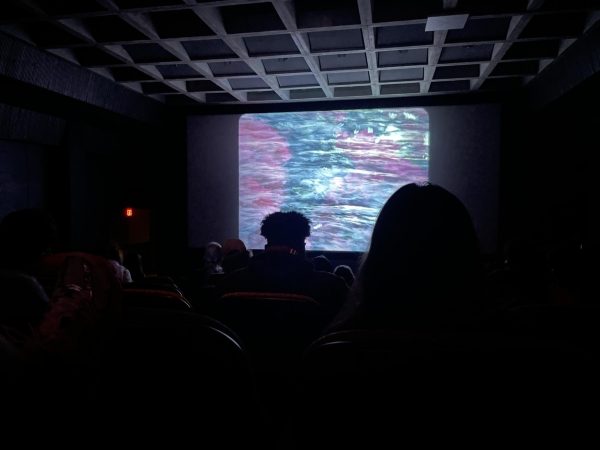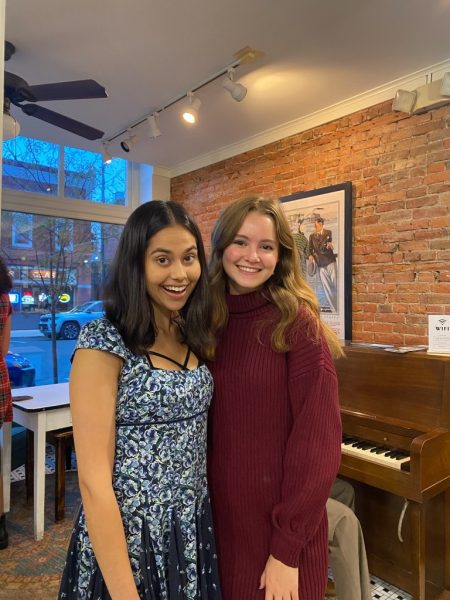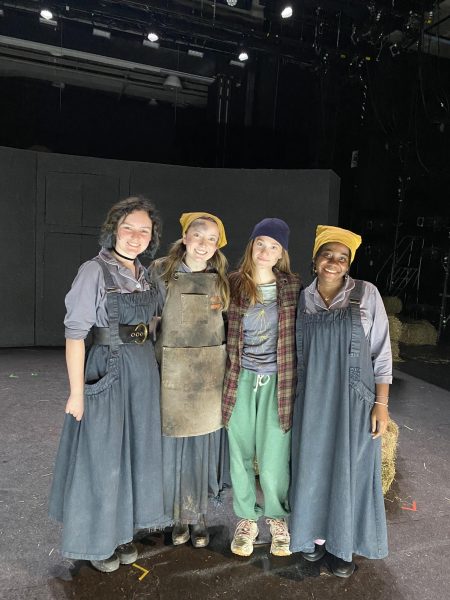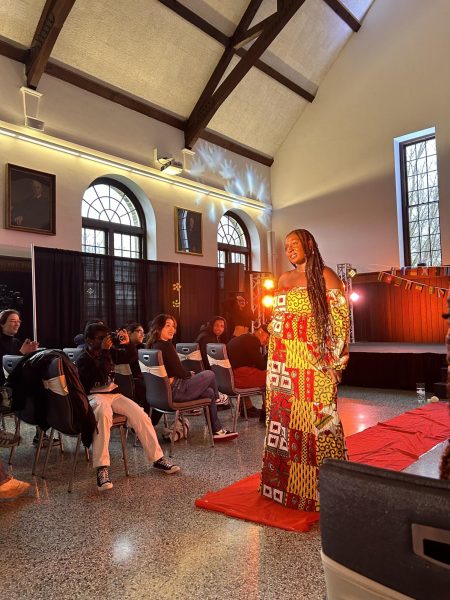A Night of Music with Journey West
Journey West is a nine-person music ensemble that performed at the Palace Theater on Friday, October 25. They played mostly Middle Eastern music and their setlist brought the audience along on a journey from East to West. They opened with a melody from the Iraqi folkloric tradition and then stopped in Syria, Turkey, Israel and Egypt. Ayman Abdalla, the tambourine and drum player, is the Arabic language intern here at Colgate. Abdalla is Egyptian and on-campus he helps students of Arabic master the Egyptian dialect. He travels to Ithaca twice a month to practice with the ensemble.
“The set changes depending on the audience,” Abdalla said.
When the crowd is mostly Arab, they play more traditional pieces and when they play at a university they like to stick to their Western trajectory. This performance was rare because they had a Turkish vocalist feature on a few of the set pieces. She sang traditional love songs and a traditional Alevi folk song.
The performance also alluded to tensions one might encounter in a physical journey through borders as the Turkish vocalist was asked to introduce the next song, which was written in honor of the many Greek and Armenian victims of Turkish violence. Sophomore Ani Arzoumanian spoke about this piece in particular after the concert.
“I am Armenian and I appreciated the recognition of Turkey’s violence against minorities, but I was surprised to hear that at a Middle Eastern concert! I think it’s important to understand the cultural histories of music and sometimes, unfortunately, violence is a part of that,” Arzoumanian said.
Before the music started, the ensemble’s logo was projected onto a screen. The logo, which was designed by Martine, the daf player, spelled out “Journey West” with Arabic characters to highlight the mixing of cultures that their ensemble strives to achieve.
“Most of the members are American and live in Ithaca, but we have one Irani musician, one Iraqi, and me,” Abdalla said.
The ensemble also presented examples of the fusion of cultures within the Middle Eastern region by playing a medley of Egyptian and Iraqi songs. As the group began to play, the logo faded into informational slides about each piece. The slides offered information about composers, arrangers and context. The information helped create a focused experience for the audience.
“I went because Ayman was performing but it exceeded my expectations, I loved the short introductions for each music and how musicians came downstage at one point and made it interactive. I felt like I was back in Egypt again,” sophomore Sowon Kim said of the performance.
After the performance trays of catered Middle Eastern food were available to all, leaving a thoroughly happy audience.
Elizabeth Shaw is a senior from Washington, D.C., concentrating in anthropology and museum studies. She has previously served as an assistant editor for...











